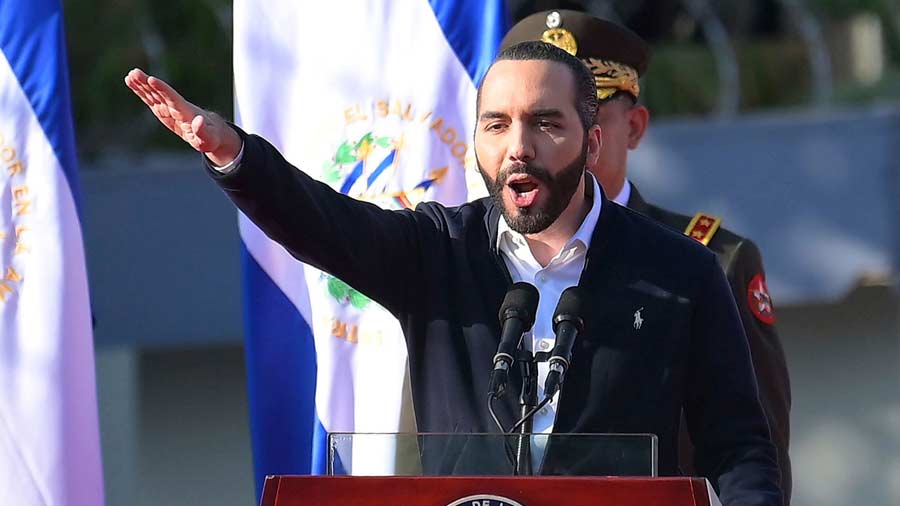
In 2020, the President of the Republic continued on a dangerous path of blows to democratic institutions.
The young Salvadoran democracy is facing some of its strongest challenges under the presidency of Nayib Bukele.
The most visible democratic failure took place on February 9, when the president ordered a military and police takeover of the Legislative Palace, to unduly pressure deputies to approve a loan.
This raised harsh questions from the international community, which found there that the “youthful and fresh” president was imitating rotten practices of political aggression and authoritarianism.
Read also: Bukele’s abuses of power lead the US to reduce military aid to El Salvador
Likewise, the president continued the practices of previous governments to disqualify the Constitutional Chamber when it limited its power, especially when it forbade the police to make illegal arrests, which the president encouraged him to continue to do.
These are the signs of the abuse of power that the Salvadoran government committed in 2020.
Following the scenario of other authoritarian leaders in the world, Bukele obstructed the control institutions, manipulated the security forces to direct them to his political agenda and flirted with militarism.
He also launched attacks on opponents, who received the weight of the state because they questioned the government’s leadership.
Enemy of the press, of questions in the professional and technical sectors, the president and his officials did not spare resources to insult, denigrate and map them.
Cases to forget:
9F
The day the democratic mask of the government fell and its authoritarian impulse of forced pressure and co-optation was revealed instead of negotiating and dialogue to find political solutions. On that day, Bukele used the security forces as armed weapons of his whims and as tools to harass and intimidate his opponents.

From 9F, the democratic mask of Nayib Bukele collapsed and the United States began to see its approach to authoritarianism. Photo EDH / Archive
Human rights abuses
A key pillar of authoritarianism is non-compliance with the fundamental rights of citizens. In the early months of the pandemic, Bukele approved arbitrary seizures and abuses of power, in addition to addressing the health crisis with improvisation and a militarized touch.
Challenge in the room
The Bukele government openly defied court orders. On April 16, the president said he would not abide by the ruling banning him from arbitrarily capturing alleged prison offenders and encouraged police to continue to do so. Moreover, his officials reproduced this disobedience.

A UCA report coincides with the reports of the Prosecutor’s Office for the Defense of Human Rights on violations committed by the Government in illegal detentions and “detention centers”. Photo EDH / Archive
Weakened institutions
In addition to his constant attacks on Members of Parliament and the Constitutional Chamber, the President constantly strikes at other institutions that control his leadership, such as the Court of Auditors or the IAIP. This makes it easier for him to drive without limits and not be subject to orders that contradict his whims.

The latest appointments of commissioners in the IAIP threaten the independence of this institution, criticize the experts in transparency. Photo EDH / Archive
It politicizes the PNC and the armed forces
The President despises the Peace Accords and, apparently, one of their main results: the professionalisation of the security forces. On the contrary, he used them as tools to promote his political intentions, which led to human rights violations and crimes.

The director of police was dismissed for breach of duty due to a procedural error, but the judge reminded him that “we are not in the monarchy” and we must obey the laws. EDH photography